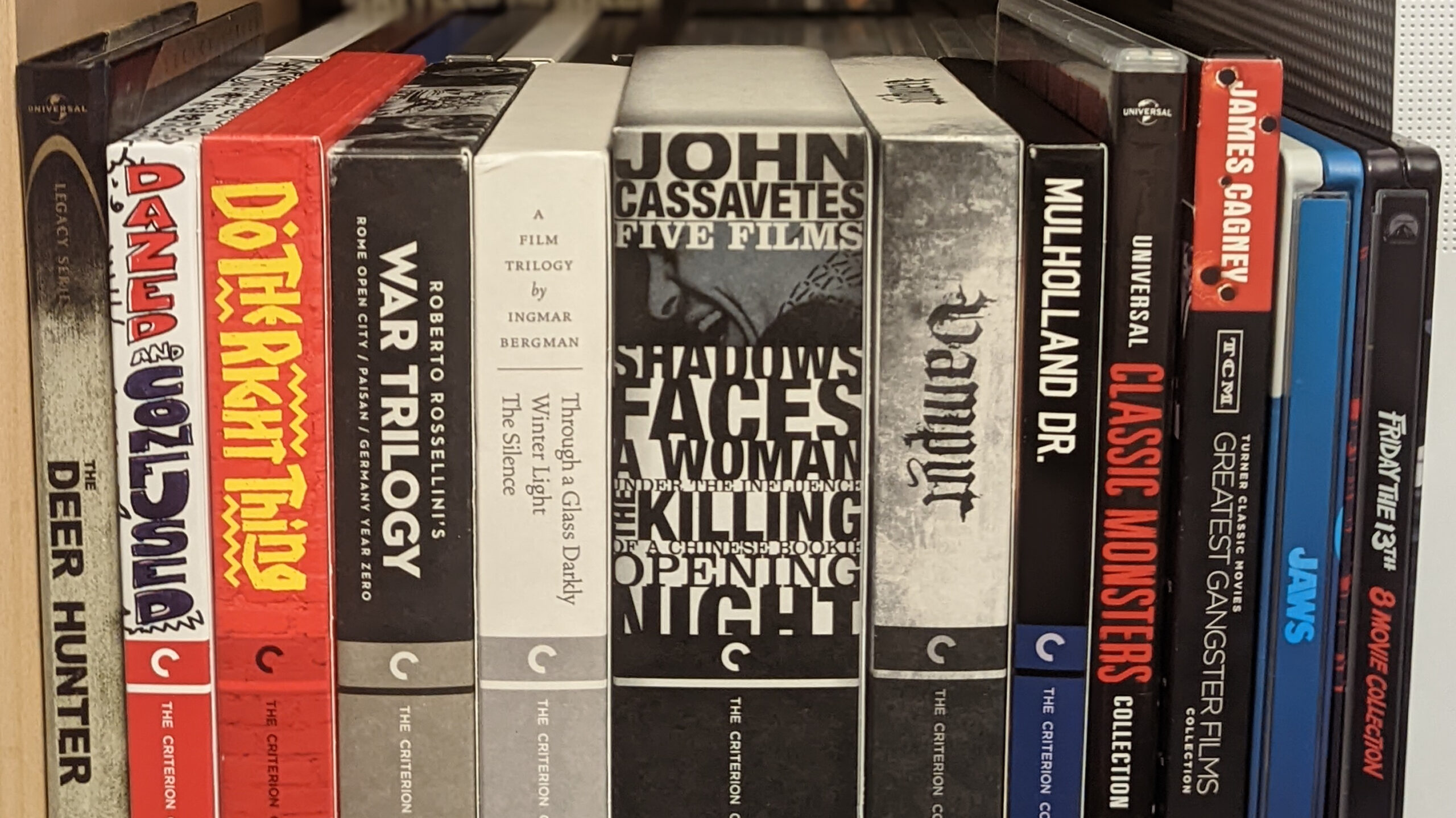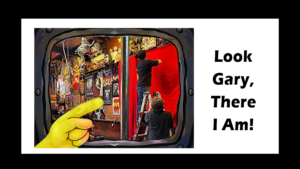As I patiently wait for the first Criterion Collection sale of 2022, I can’t help but think about the little rush of dopamine I get when I receive my movie purchases in the mail. There’s no better feeling than opening a package and beholding the beautiful cover-art on Wes Anderson’s The Grand Budapest Hotel or Georges Franju’s Eyes Without A Face. Holding the seminal works of John Cassavetes or Ingmar Bergman in one formal box-set is like holding the Rosetta Stone tablet for a filmmaker like me.
Every time I get one of these packages, however, I get the same questions from the parents: How much did those cost you? Are you even going to watch them? Who’s David Lynch? Can’t you watch this through one of the streaming services?
Don’t get me wrong—I love watching off Netflix, Hulu, or Amazon Prime. Their vast digital libraries are so organized and catered to my ~~cinematic taste~~, thanks to their 𝚊𝚕𝚐𝚘𝚛𝚒𝚝𝚑𝚖𝚜. I’m not a subscription freak where I have to have them all, though. Just the essentials, a matter of convenience; all of them combined cost way less than cable (which I’ve since gotten rid of) and provide (mostly) great original content that you can only watch there. So why do I even bother with physical media? What do I get out of buying DVDs when all the content is…
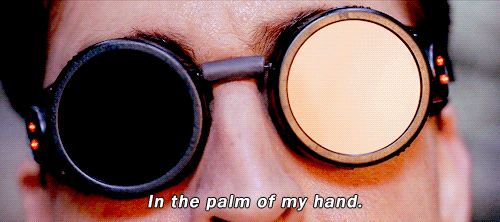
My biggest gripe with the streaming industry is how we don’t own these movies and shows to binge-watch over and over again. It’s not new knowledge. This is something we’ve grown used to in a digital streaming society. We know that as long as we remain subscribed to Netflix’s service, you don’t have to say goodbye to The Kissing Booth or Big Mouth. Just gotta keep the money up and pay a monthly fee to watch my favorite movies for the rest of my life. A pretty good deal, right?

Well, no. It might shock some of you, but companies like Netflix and Hulu only temporarily retain the streaming rights to your favorite shows and movies. We all remember how devastating it was when The Office went over to NBC’s Peacock service or all the Marvel Netflix shows transferred to Disney+. It became just another streaming service to subscribe to; not entirely sure if you’ll even watch anything off it in a month’s time.
The way it works is these production companies license their material out to streamers like Netflix, HBOMax, and Amazon Prime for a set period. These deals can last indefinitely with optional renewals. But lately it seems like everyone’s getting a crack at the streaming game, which means that these deals have been changing hands quite rapidly. Once the movies finish their run, they take off to be distributed elsewhere or otherwise fade into oblivion. Even Criterion Channel, where artistic and classic movies go to find new life, doesn’t keep their content forever on the service.
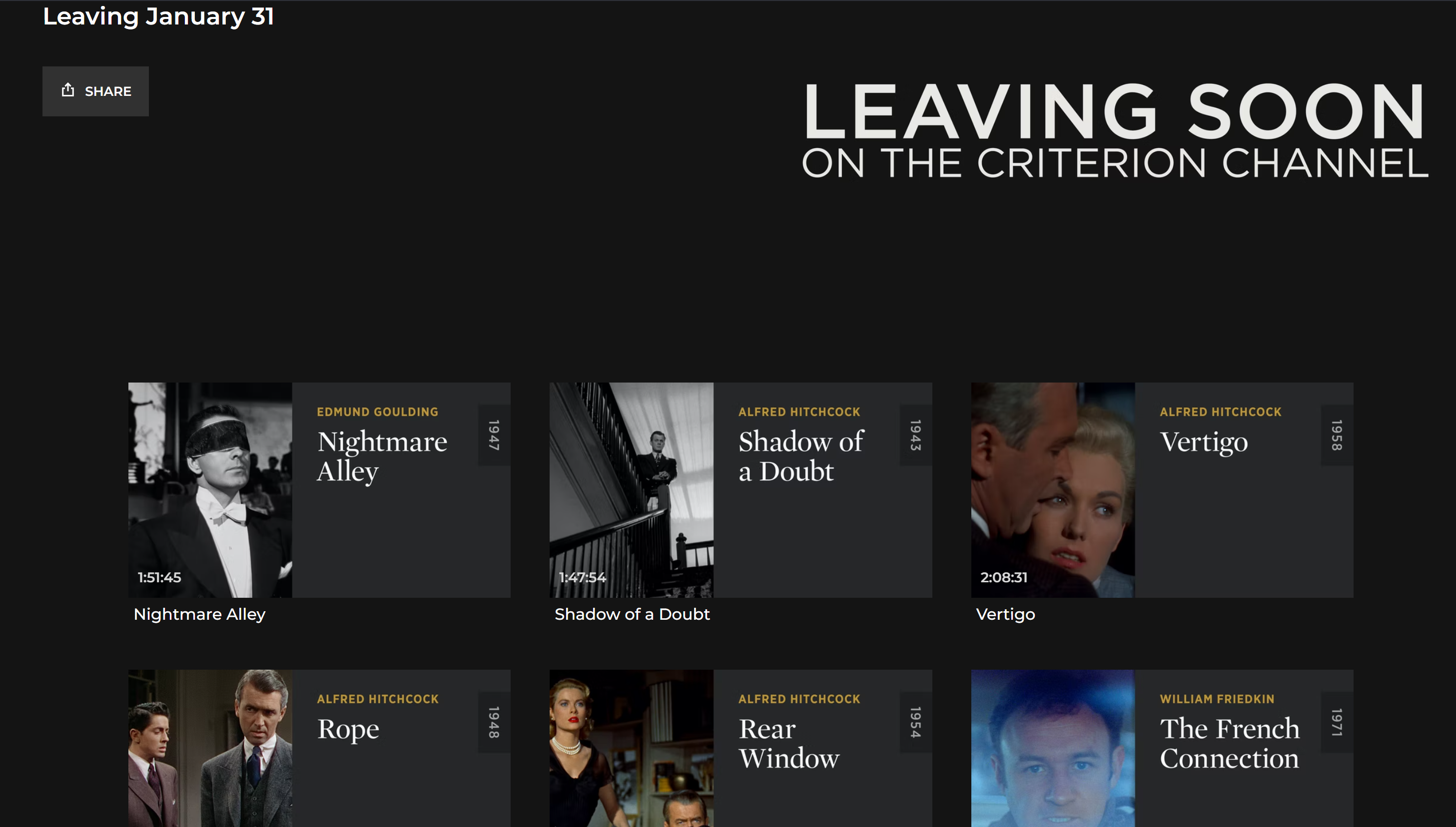
My problem with the whole thing is the lack of control over what stays and goes. There’s an entire website dedicated to the films and shows that leave Netflix monthly. Without sounding overly dramatic, we are at the mercy of these digital media companies in terms of what we are capable of watching on our terms. Relying on this temporary licensing doesn’t work for viewers like me, who like to watch things repeatedly on whims or to show others. Owning a DVD/Blu-ray is the way to ensure you’ll always have your favorite movies on call.
Some discs are a scarce find, too. Not everything is consistently reprinted on DVD; most go out of print or can only be part of a collection. Either they’re too obscure, or there was never any home video release if they’re old enough. It’s exciting to know that I have a disc that’s out of print (OOP); it makes it almost like a treasure hunt. I’m still searching for a fairly-priced Criterion Edition of Rosemary’s Baby (OOP for obvious reasons relating to Roman Polanski) if only to see the great John Cassavetes and Mia Farrow.
At my current count, I own 83 movies, most of them Blu-rays, a few steel boxes, and decent-looking DVD releases. I just bought a great-looking 8-movie collection of the Friday the 13th series, which is excellent since this franchise has no real streaming presence right now. Imagine having a film that isn’t readily available because its distribution period just faded away, and no one else has it unless you catch it on the odd cable movie channel.
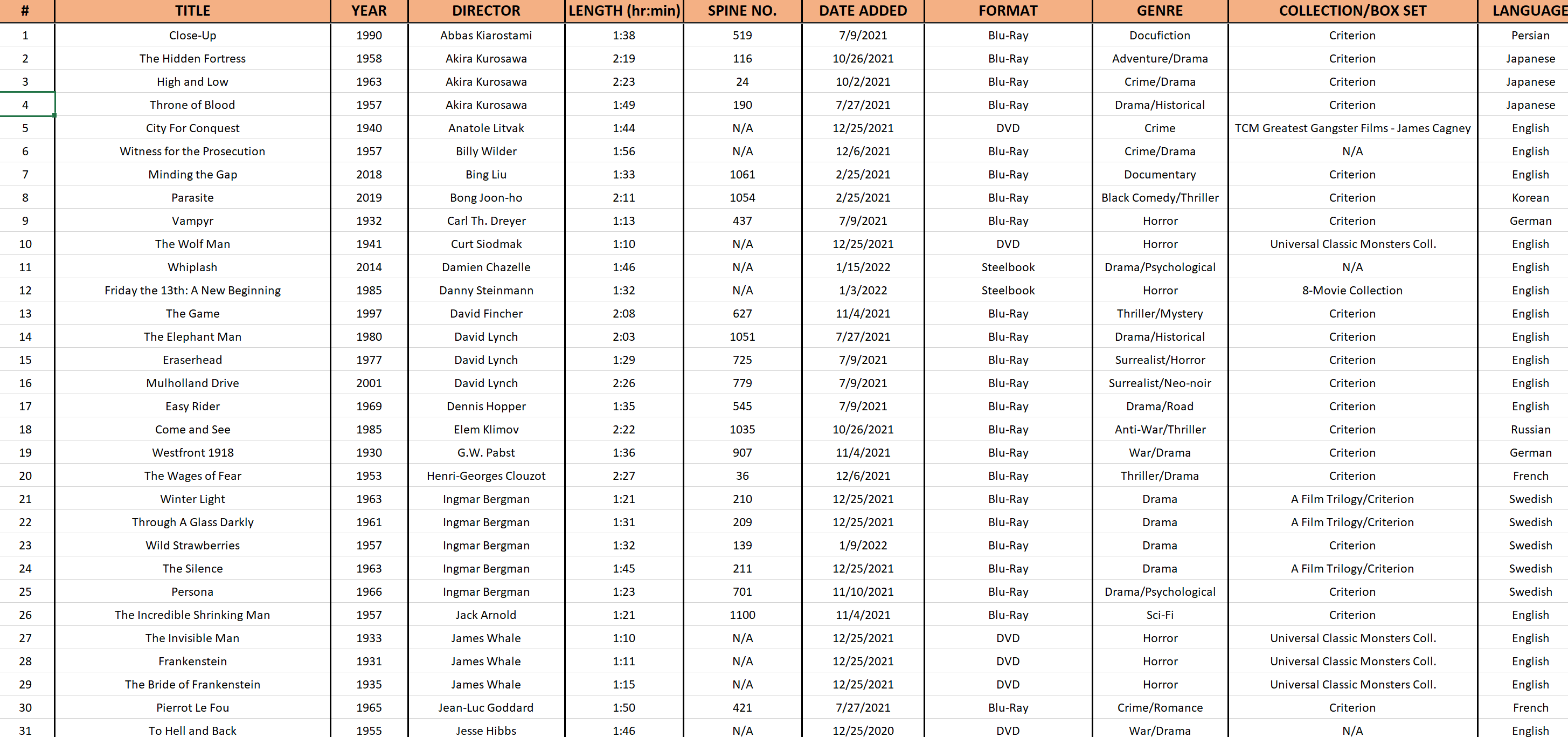
As you can see, I have quite a few Criterion Blu-rays.
Before we get into my second reason for buying movies over streaming them, I need to tell a little bit about my introduction, and eventual fascination, with physical media.
Our Original Netflix Subscription
When I was about 8 or 9 years old, my dad started us on the original Netflix service; a DVD rental would be mailed to us (yeah, young people! Our movies got ~~mailed~~ to us). No late fees, no specific time to return it. Just pop it into the mailbox and wait for the next one to come in a few days. Nothing was more exciting than setting up a queue of movies to have shipped over, trying to predict what we would want to see on any given week.
Now, we’d bought movies on DVD before. We had all the Star Wars movies, as well as The Godfather Part 1 and 2. My parents even got me a box-set of classic Abbott and Costello movies. But it wasn’t until we rented from Netflix that, to paraphrase my dad, we started “getting our money’s worth“.
We were sitting through 2012’s John Carter (which wasn’t as terrible as people made it out to be), and my dad decided to check through the special features on the Blu-ray. I didn’t even know movies had something like that. We watched a 45-minute behind-the-scenes documentary, listening to discussions on the movie’s alien life, cinematic worldbuilding, and the process of making a large-scale movie. After that, we started going through the DVD extras of all our Netflix rentals. My eyes truly opened to the filmmaking operation.

I mean, what couldn’t you learn from supplements like this? And therein lies my second reason for buying physical copies of movies…
-
- SPECIAL FEATURES
These were my first lessons on filmmaking, way before high school film class and college. When we watched the original Halloween, the director’s commentary and retrospective peek-inside were like a low-budget, indie film class on their own. Rango was another great example; just all the enthusiasm behind the character design and what goes into animating that type of movie. It was pretty inspiring to my young 12-year old brain, planting a small seed of knowledge in the filmmaking process that I still think back to now.
But like most good things, you can’t truly appreciate them till they’re gone. When the streaming side of Netflix’s business became the “bigger and better” way to watch movies with ease, we switched over to that and dumped our DVD-by-mail service.
At the time, being so young and not recognizing my passion for film, I didn’t particularly care that we stopped getting movies shippped to our house. Despite my enjoyment of watching the DVD extras, the convenience of the streaming platform was too good to ignore.
When I was in college I realized that as a filmmaker, I needed to understand movie making. More than just being inspired by and enjoying classical pieces of film, I need to learn from them. And the Criterion Collection proves that it’s the best source of amazing film extras.

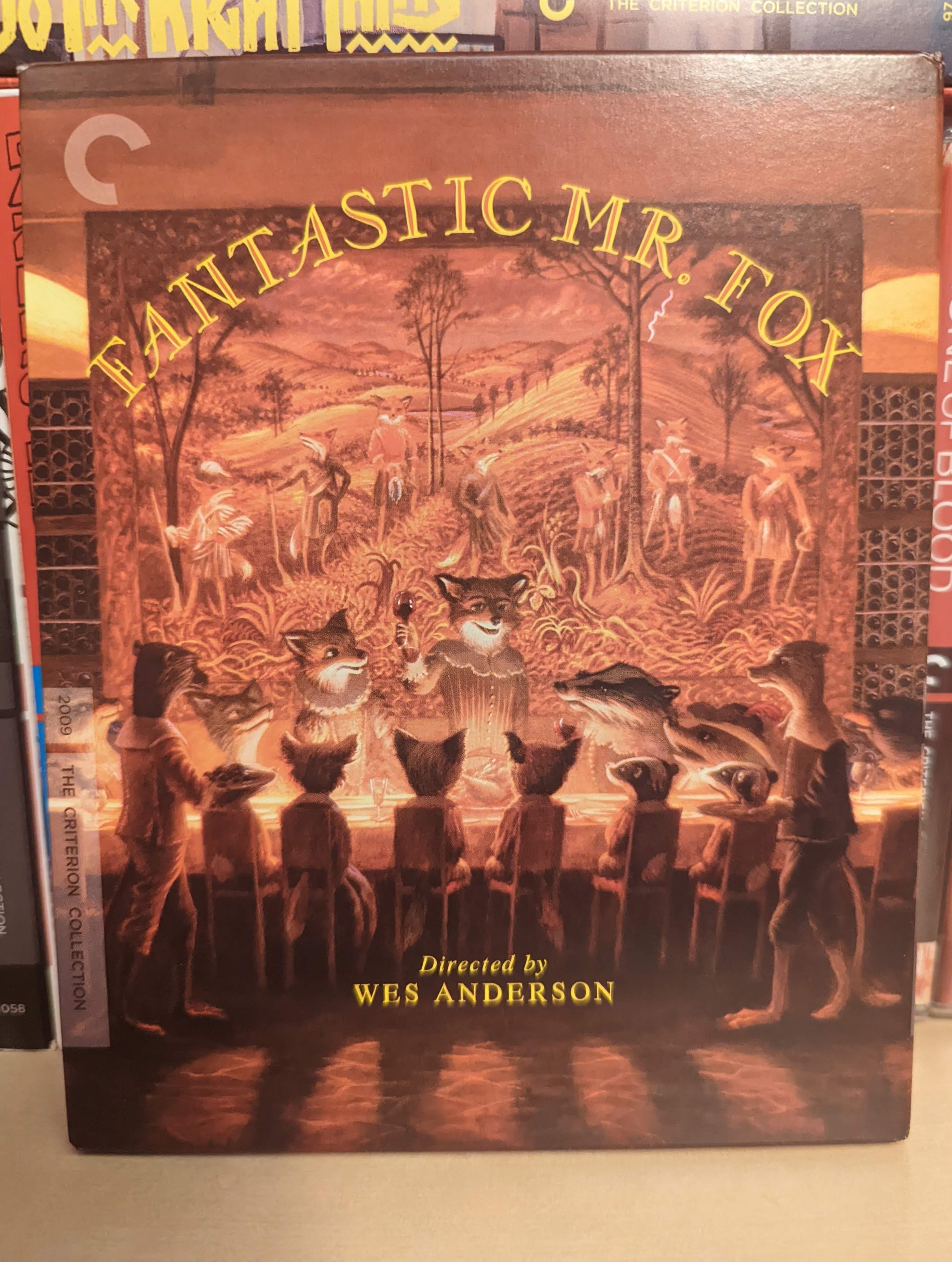
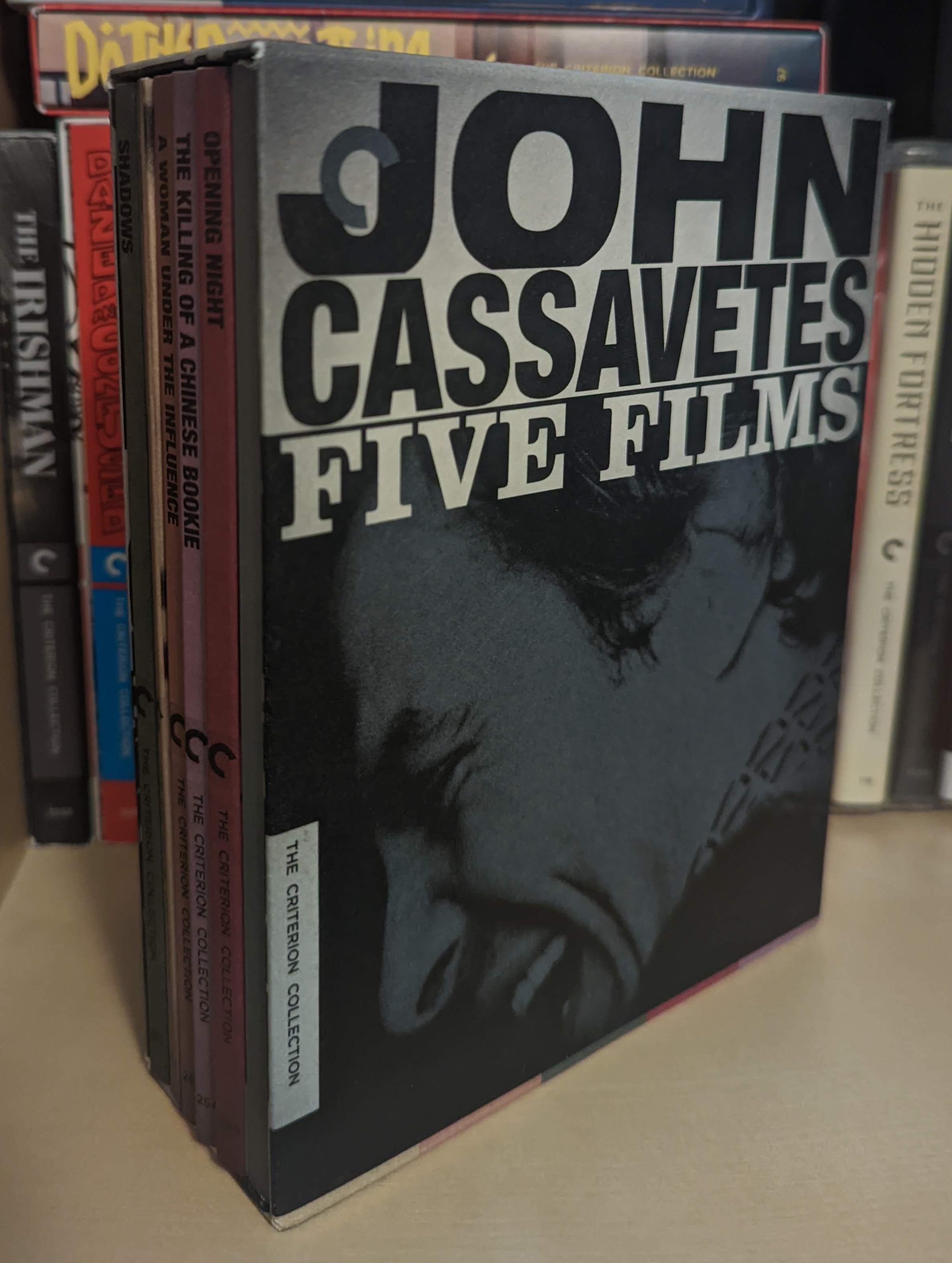
The audio commentaries, whether it be from directors, editors, writers, offer so much to a conversation on quintessential movies; they are masterclasses on filmmaking, whether they are recording alone or in a conversation. They are so vied for that, if a movie didn’t create a commentary track, Criterion will often have one made with historians, essayists and returning cast and crew (when available), just to lay down some comments that people will want to hear from.
It doesn’t stop there. Parasite‘s Blu-Ray release included segments from film festivals, Q & A’s at Cannes and other conventions where the filmmakers get to speak on their work; commentary after already watching a film can only enhance the viewing experience for those that really enjoy it. Some fans even say that tracks on certain films are better than the movies themselves.
That’s something that the streaming services miss out on, and I’ve seen more than the occasional tweet asking for it. The supplementary content allows nothing to be lost to the purveyor of the final piece. Nothing is to be lost in showing off storyboards, script vs. screen portions, and bloopers; there is only the gain of one more fan and more insight than would’ve ever been allowed to gaze upon.
Streaming is suitable for most people, I understand. There’s no telling what you’ll like from a movie; some just don’t seem worth owning forever or until you try to sell it off (often for less than what you bought it for). It’s viable for the casual-est of casual viewers, those who want to quickly flip to something to veg out their minds for a few hours.
Take the time to think about what you want from the plethora of movies that have been, are, and will be made available on a physical disc and a streaming platform today. Which sounds like the best option for you? Are you interested in taking lessons from a film’s supplementary features, or do you want to watch a good movie and give your brain a moment to relax? Do you mind if the film is indefinitely absent from your lexicon, or do you wish to have it at the ready when the mood hits you?
It all depends on you, of course.
Edit from Sept. 21, 2022: I had recently refined some portions of this post, to more eloquently lay out my reasonings and passion for collecting DVDs/Blu-rays.
I want to add this new portion to the list of reasons. With the release of Amazon’s new series, The Lord of the Rings:The Rings of Power, I wanted to reemmerse myself in the realm of J.R.R Tolkien and Peter Jackson’s Middle-earth. It took me three days to finally get through the extended editions of all three original Lord of the Rings trilogy, all available on HBOMax, but couldn’t find the same for Jackson’s The Hobbit series.
Finally, I found them on Amazon Prime Video, only to discover that The Hobbit Extended Editions all cost $15 EACH!! Outrageous and inconvenient, I said to my parents, that one trilogy should be so free to give out their extended scenes and the other to be stingy and greedy. Looking at my shelf of DVDs, I remembered that I bought a wonderful (used) collection of the Peter Jackson films in a box set, extended editions included! Lucky me, right?
